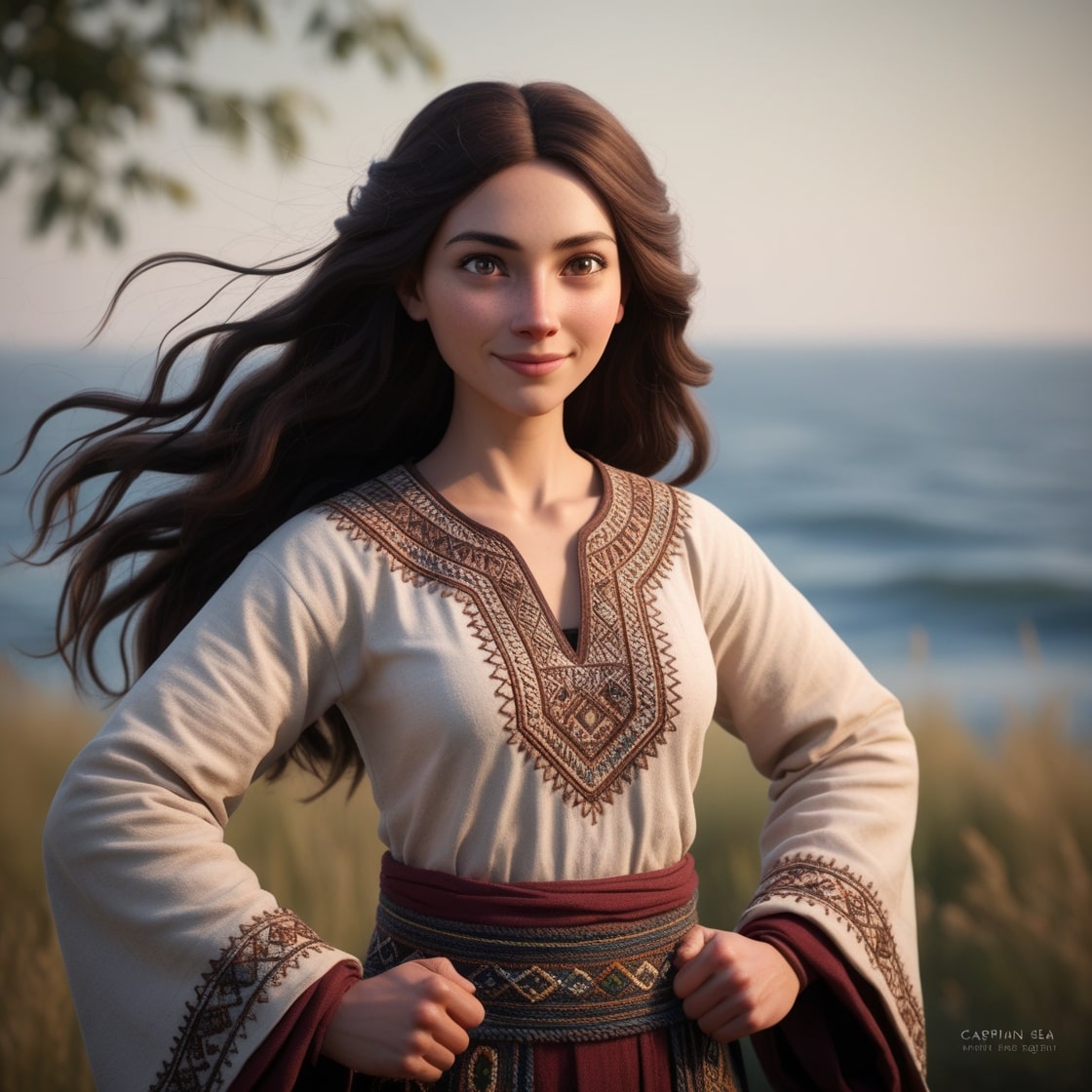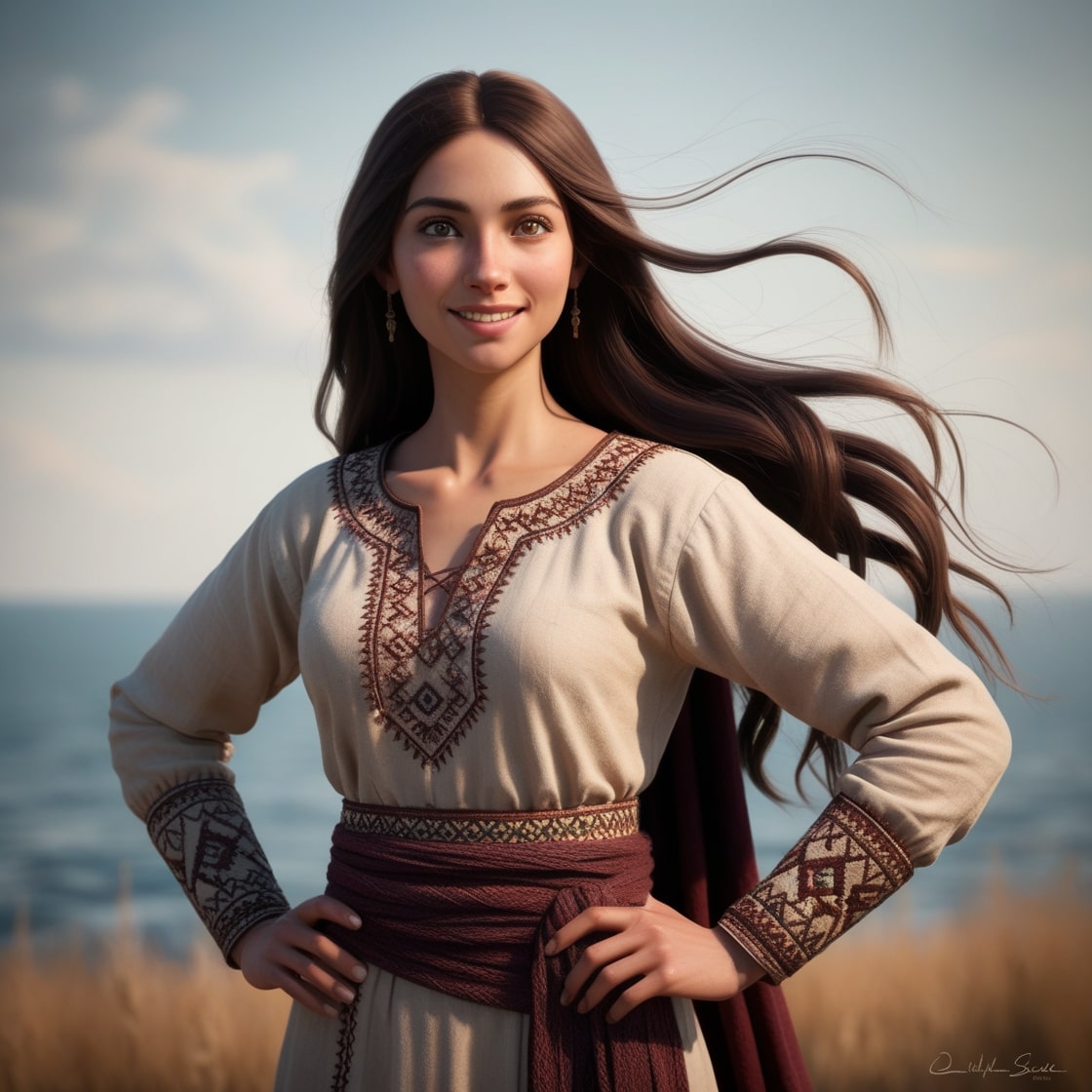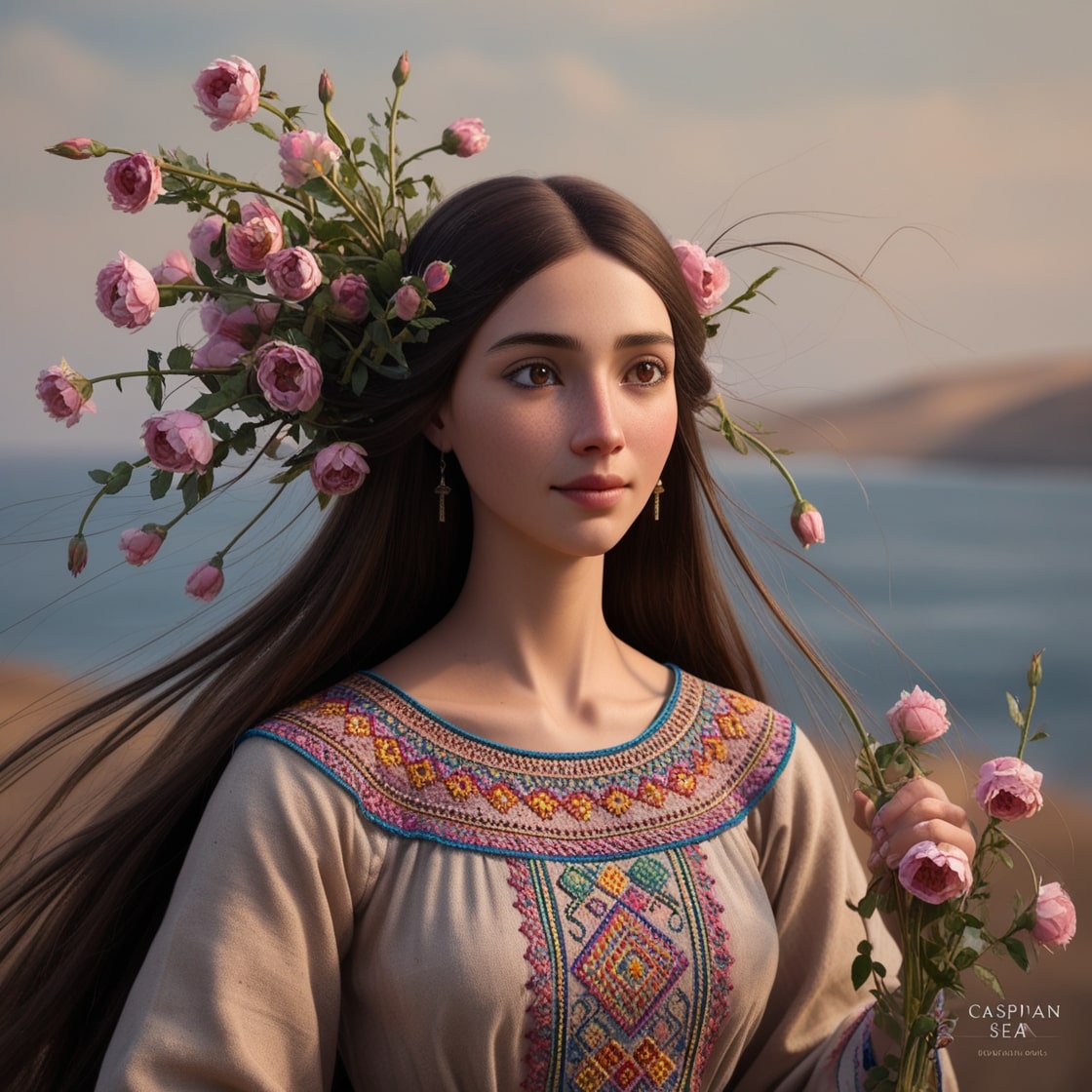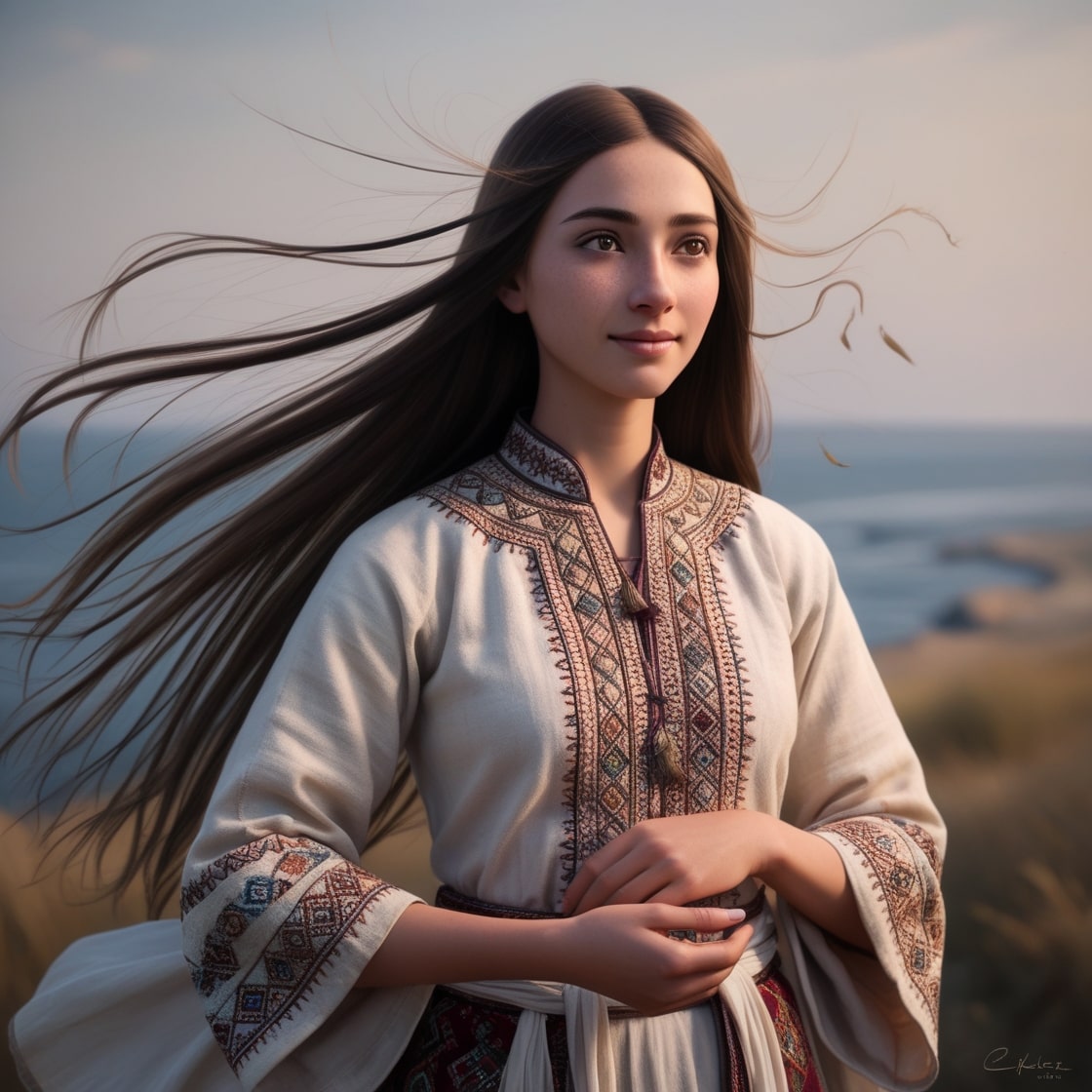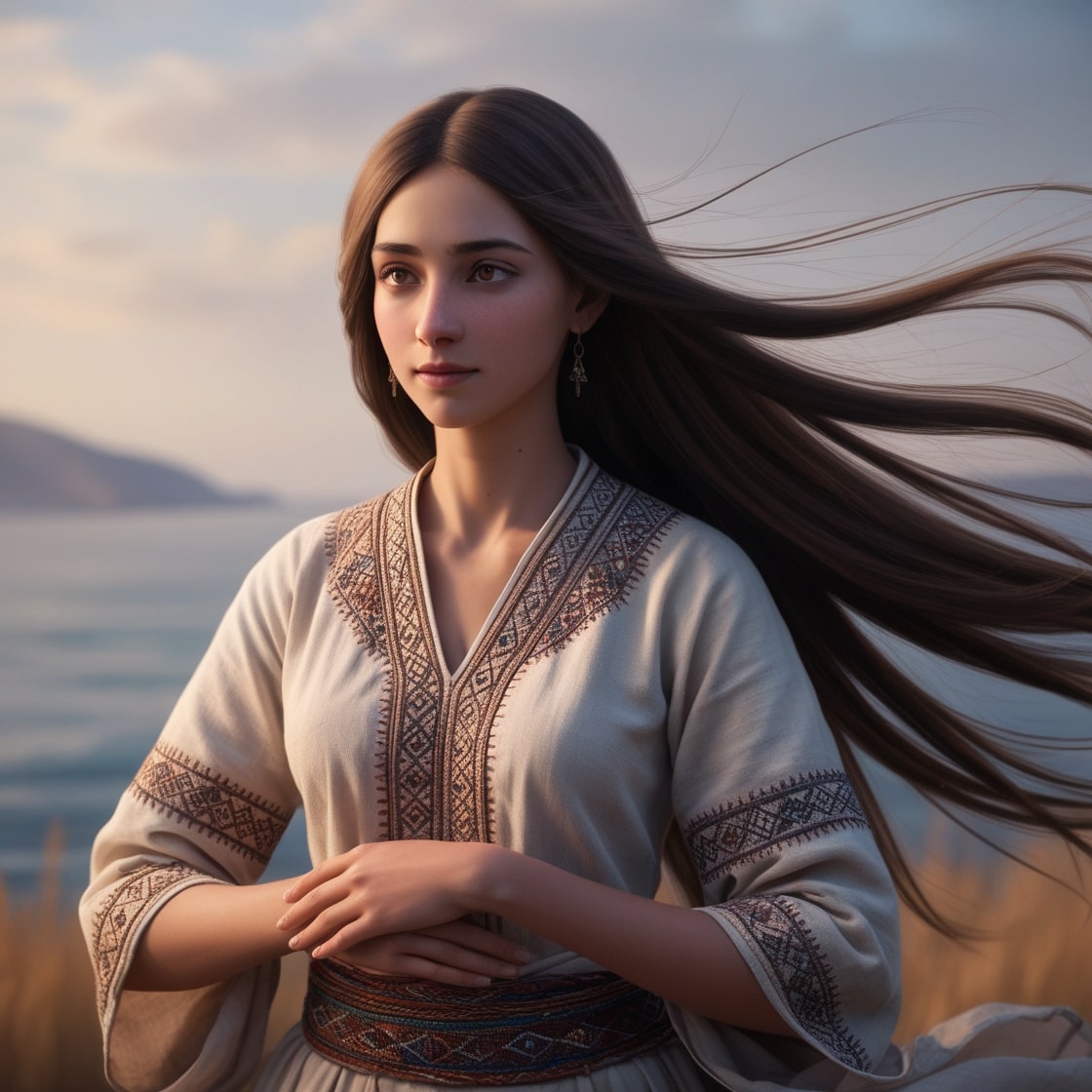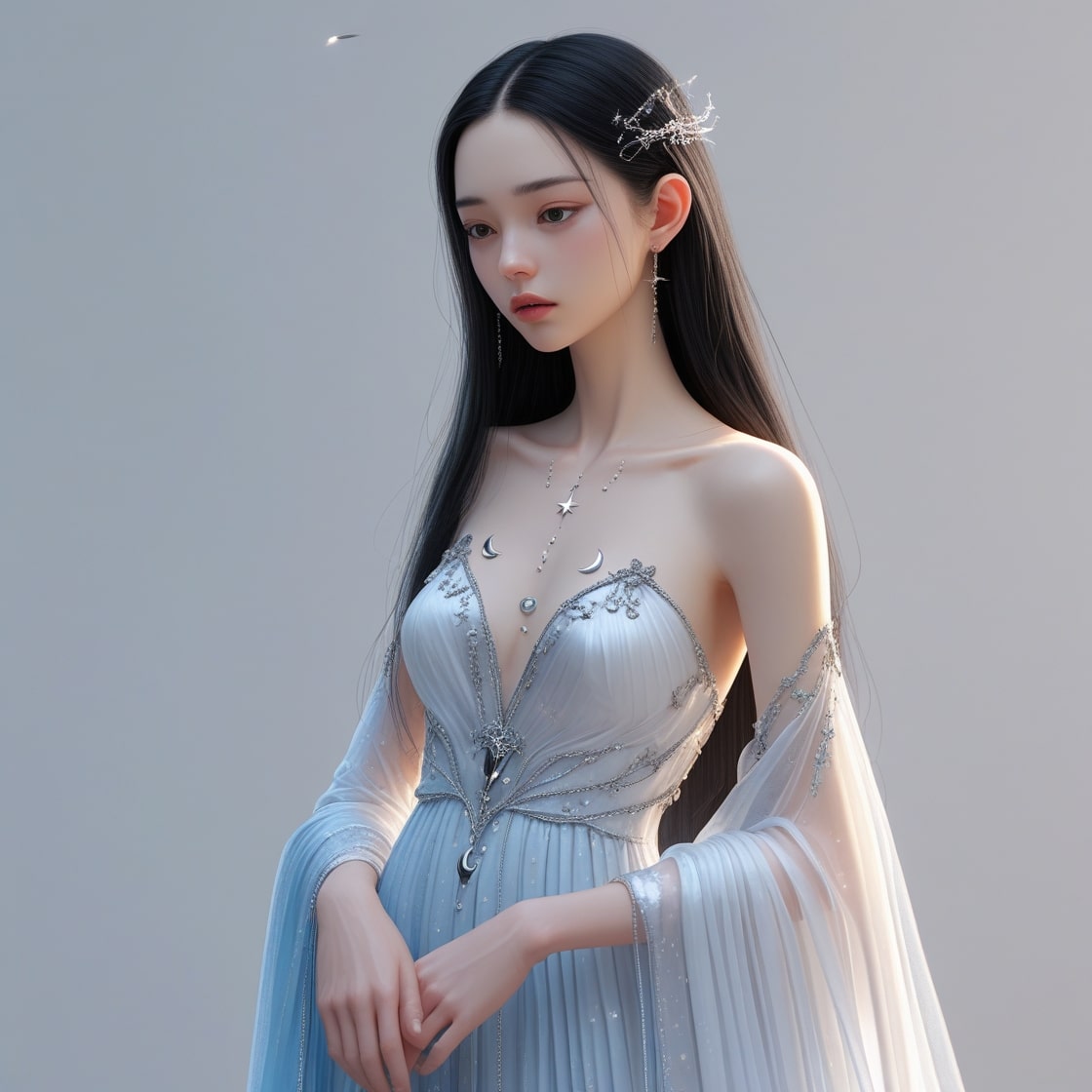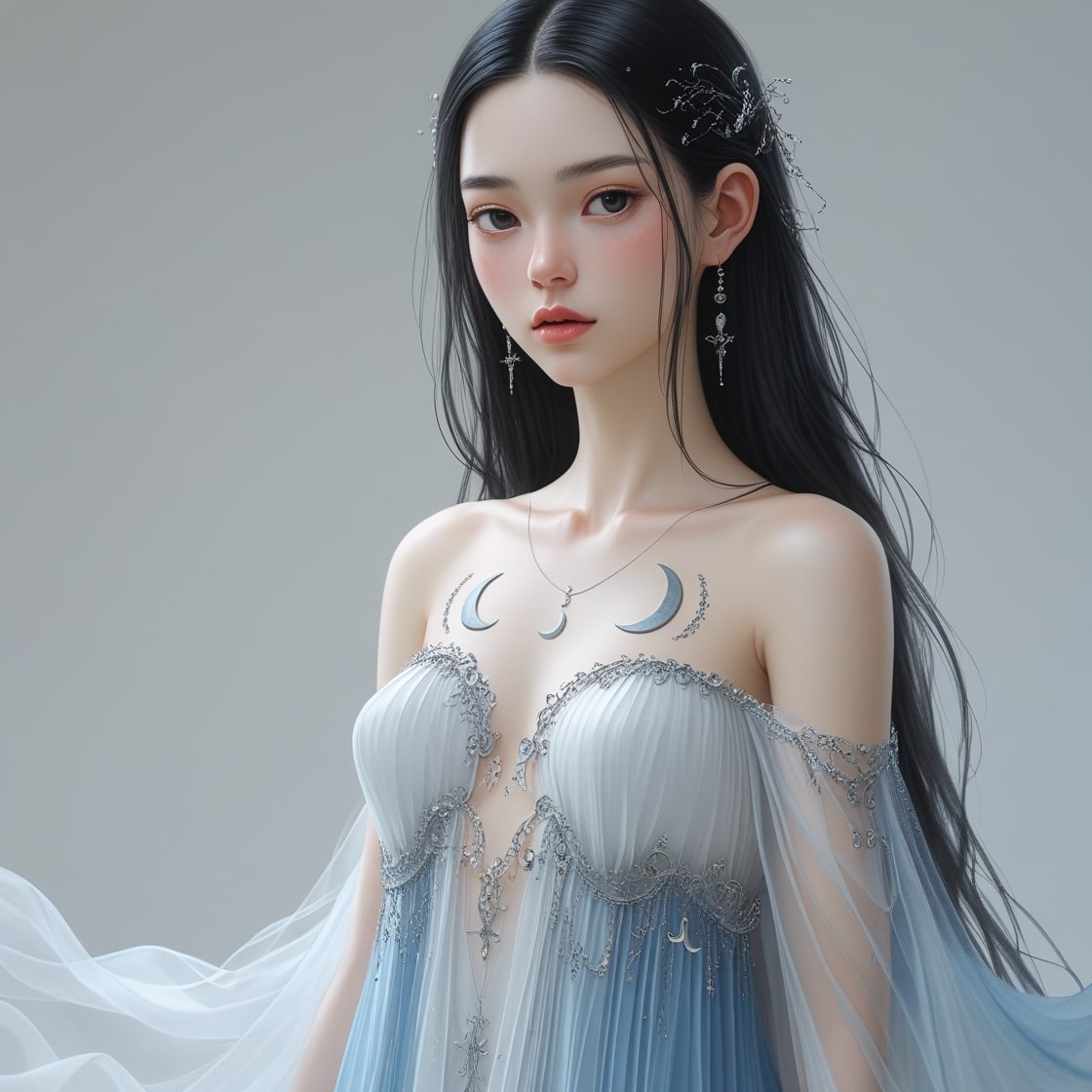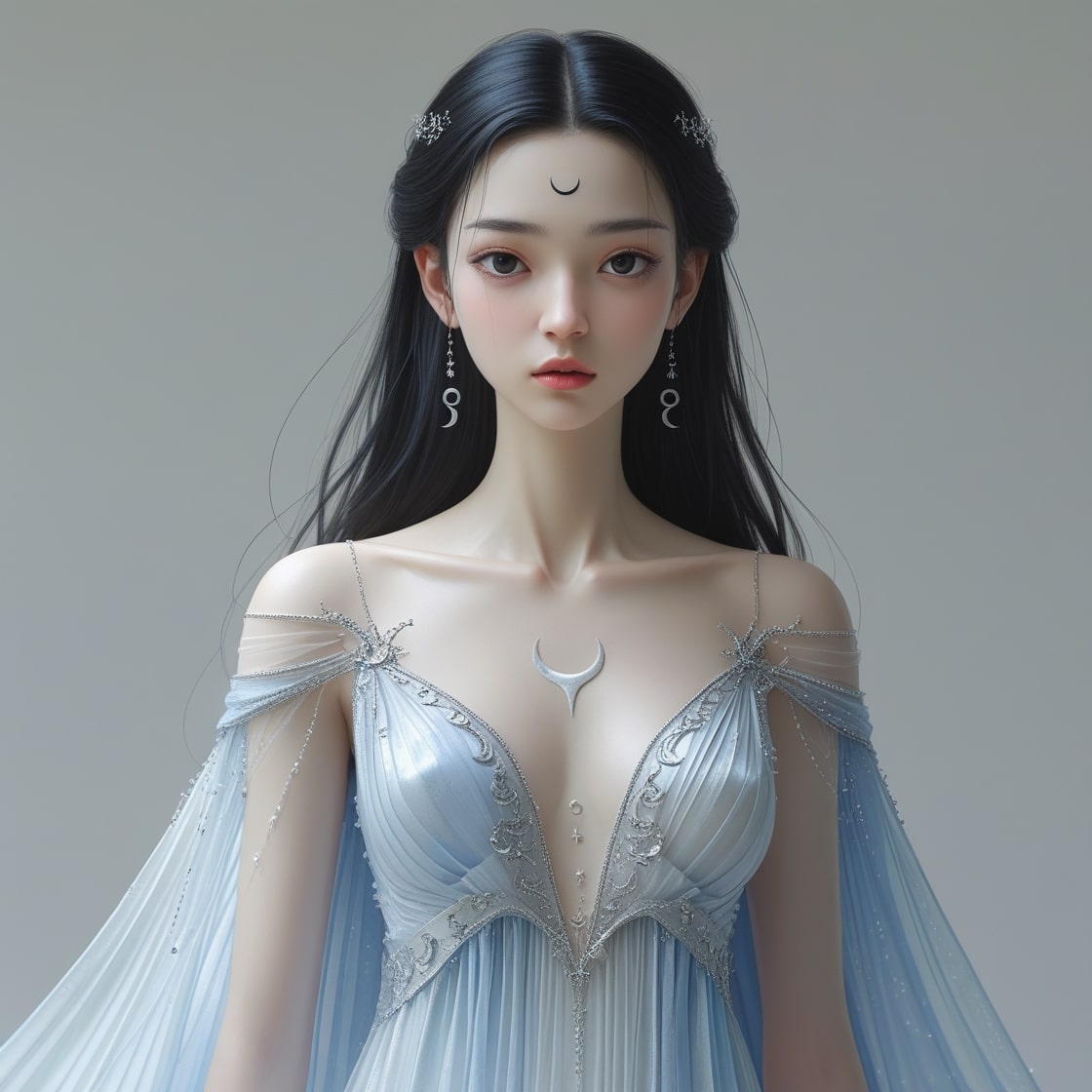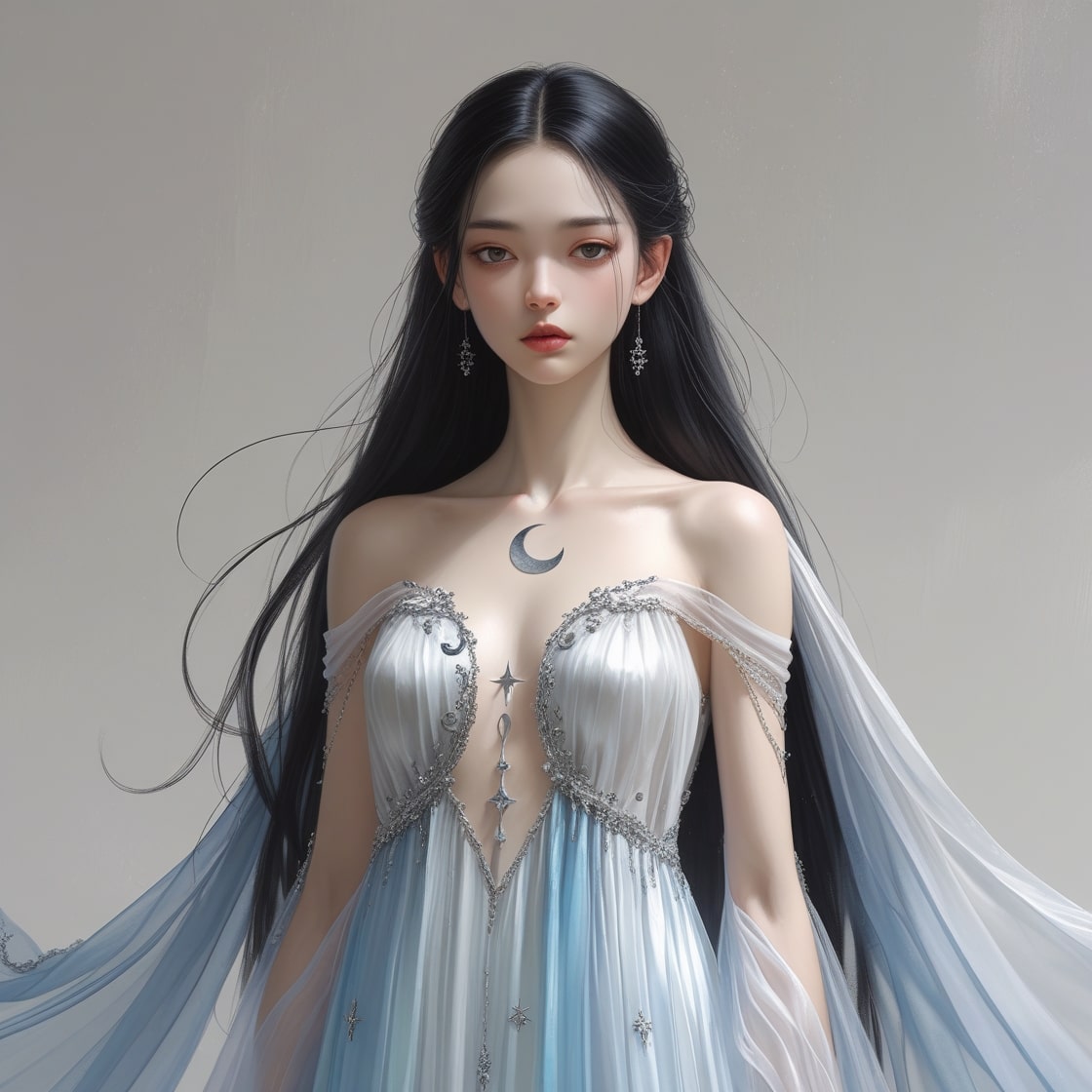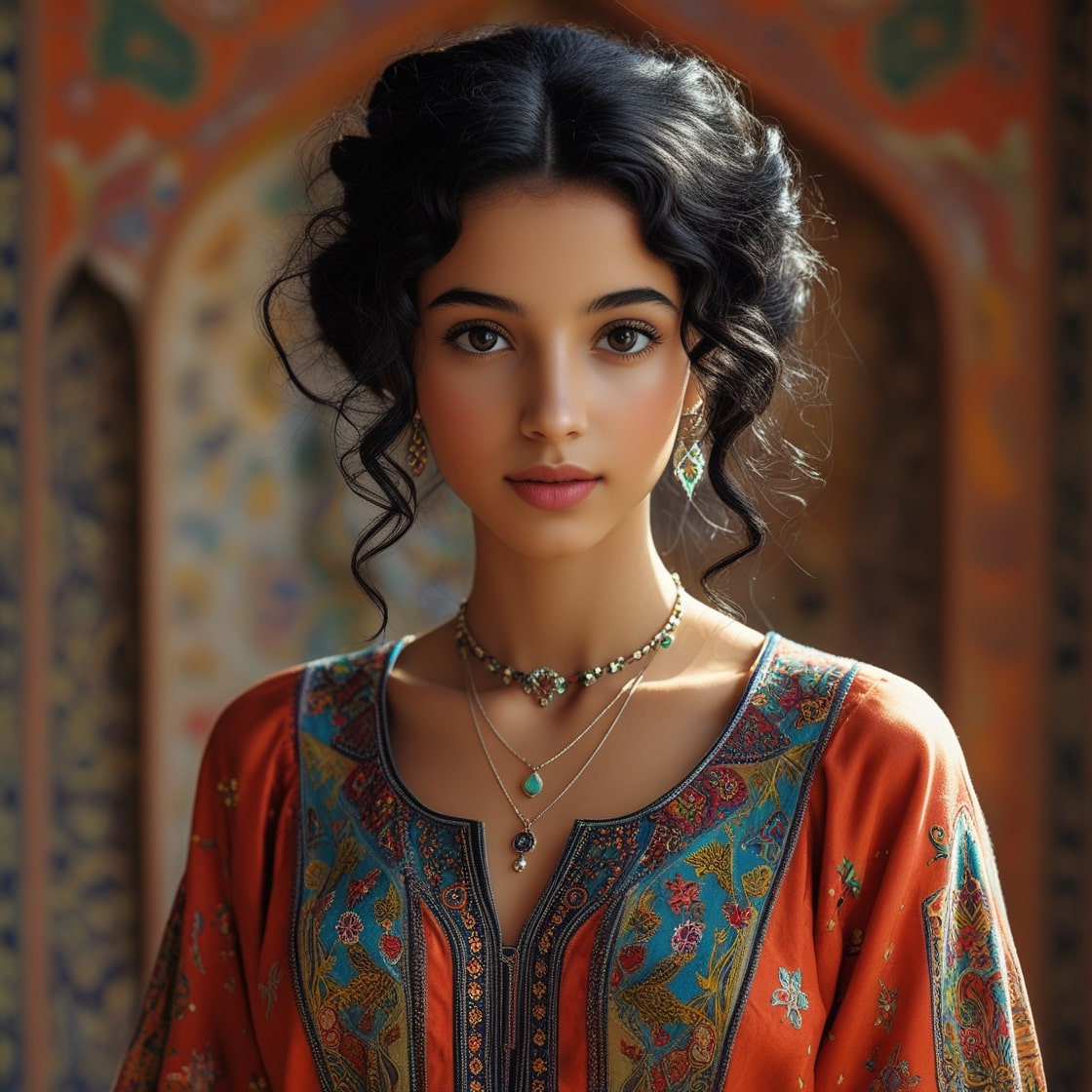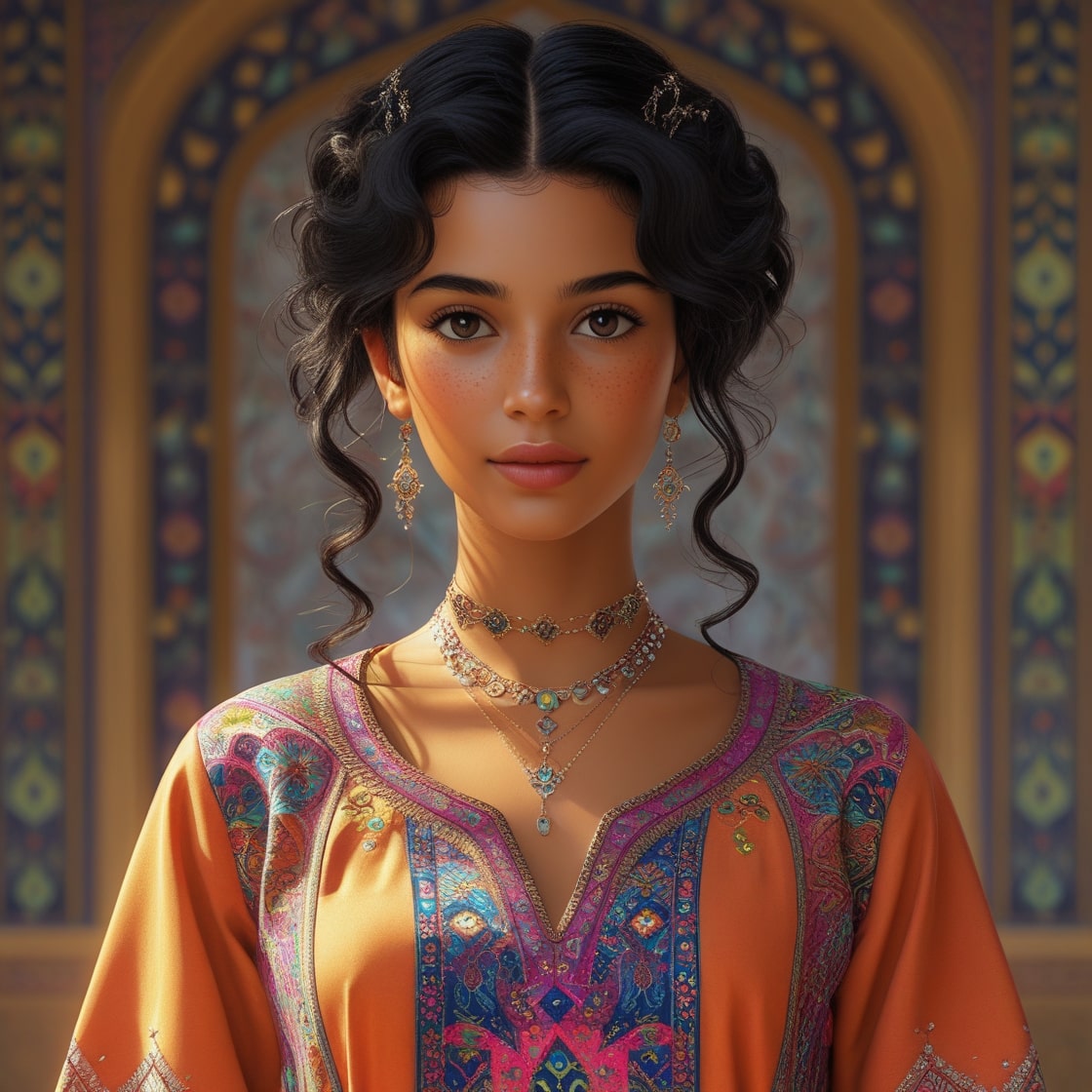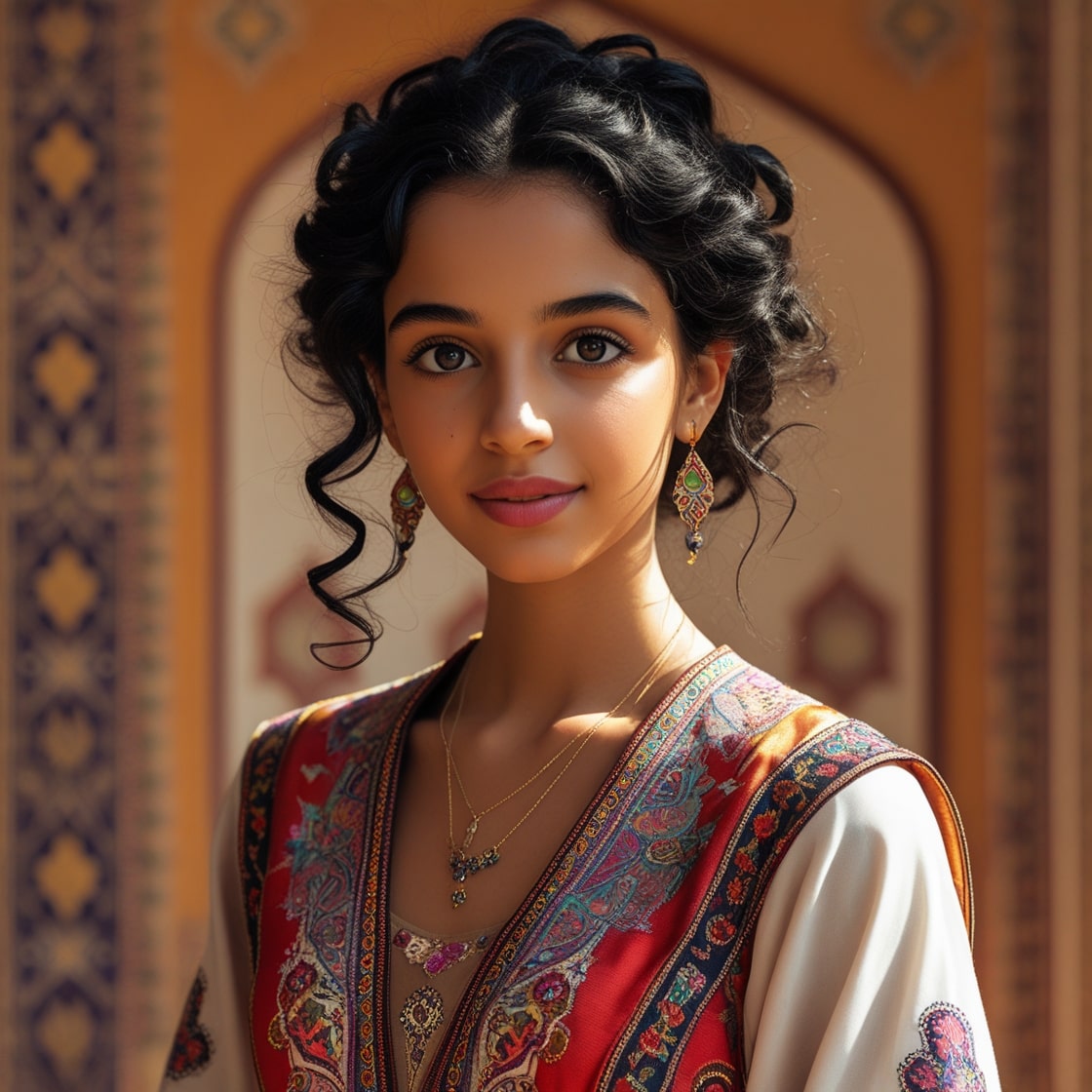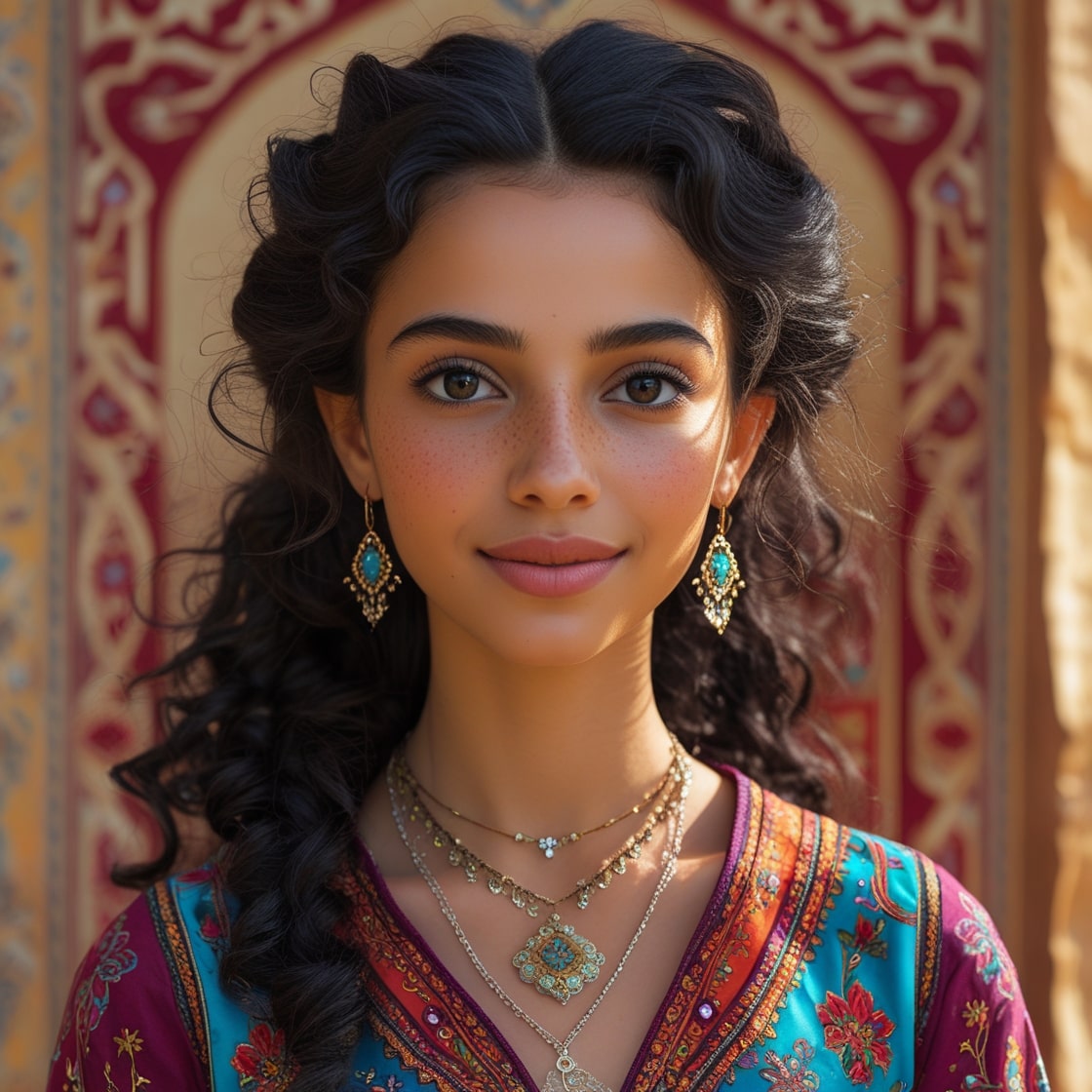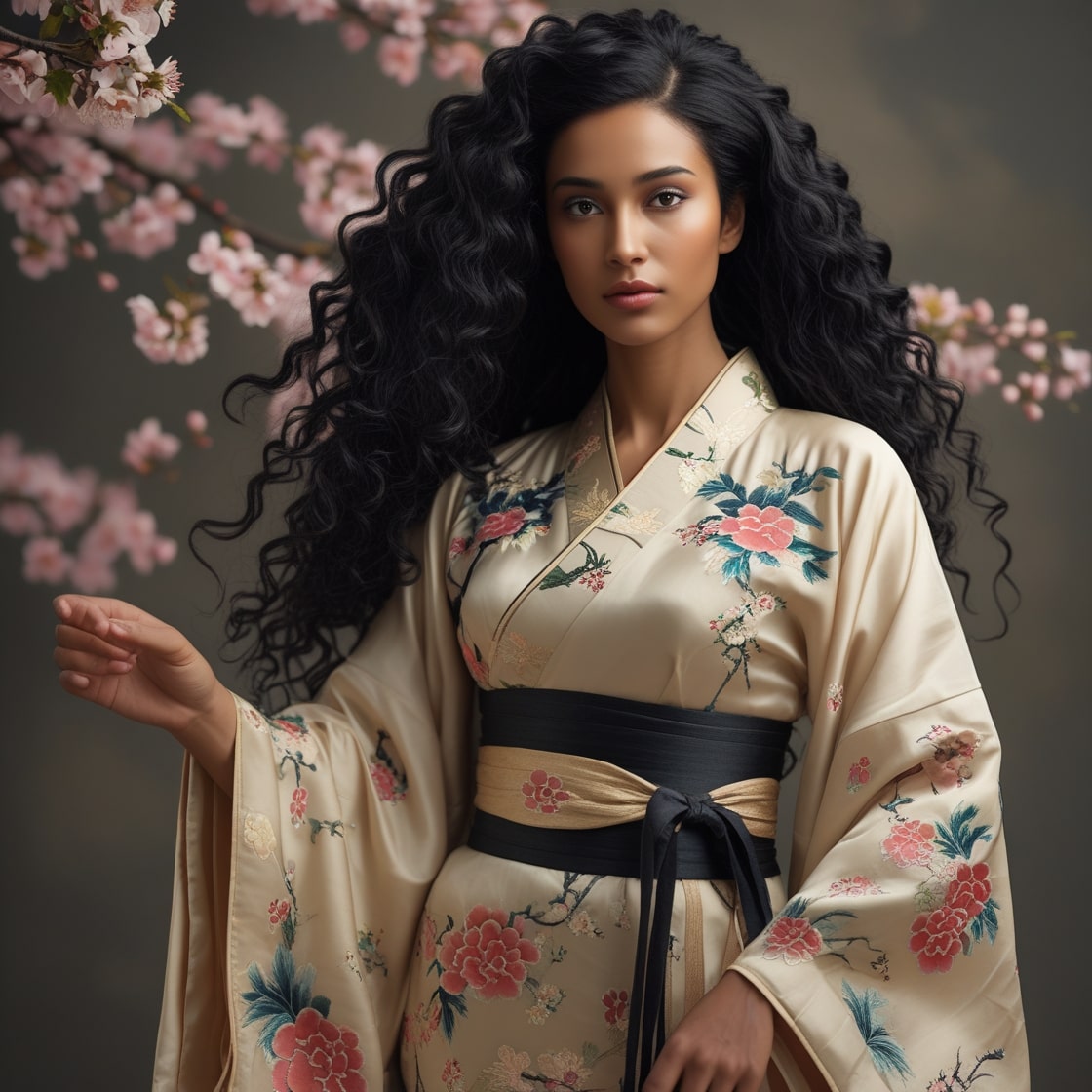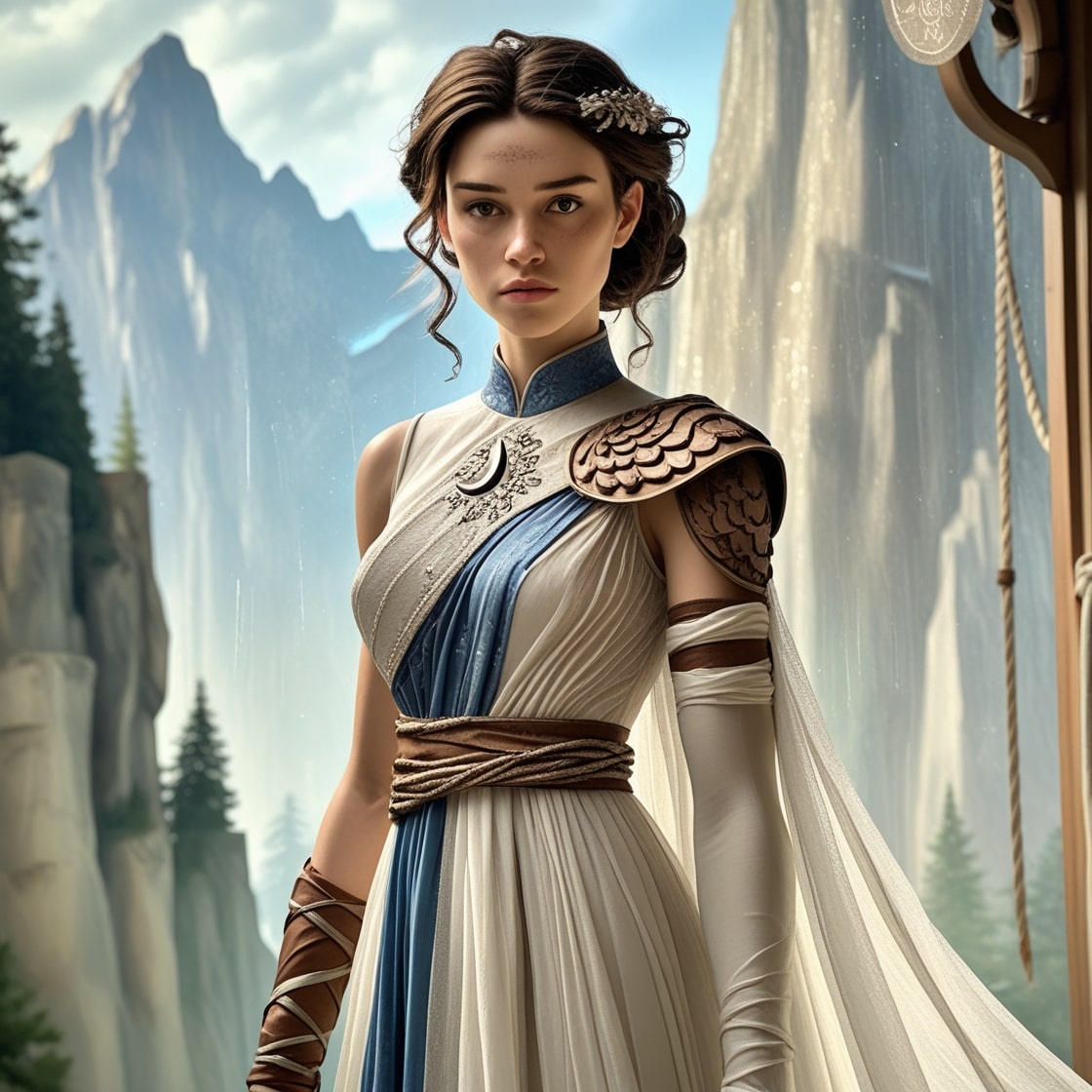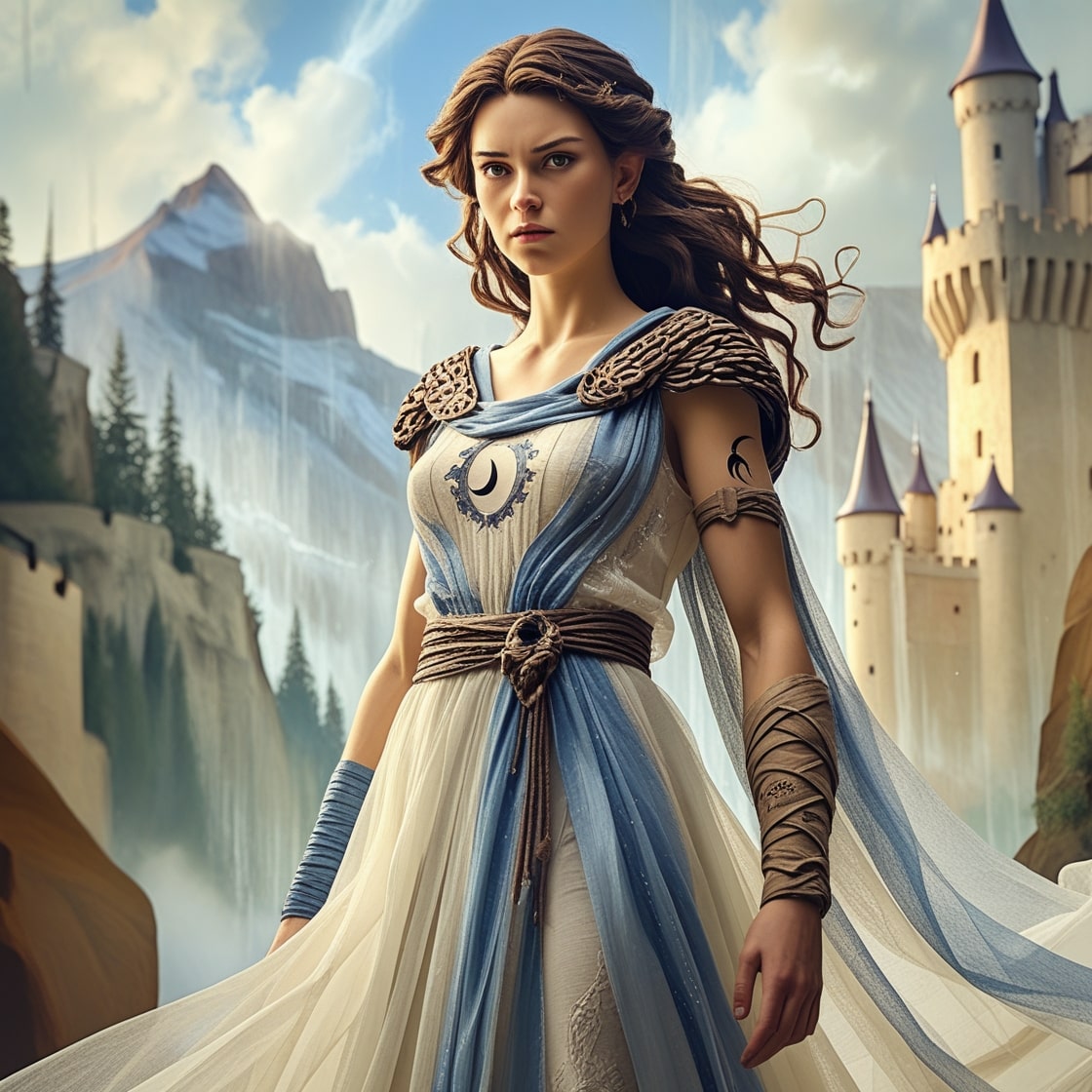It's unclear at what point in history humanity decided to cast "woman" into the shadows— The woman, without whom life had no meaning, Existence had no meaning, The world had no meaning, And even meaning itself was meaningless. And so it was that woman, shrouded in the dark veil of disregard, became absent from being itself. But these days in history are a turning point— A moment for redefining. Redefining history, stories, cultures, and words. In this book, we witness a reinterpretation of the timeless tales from the Shahnameh—stories we all know well: The tales of Fereydoun, Siavash, Rostam, and Khosrow Parviz. But this time, they are told through a woman’s voice. This time, the Shahnameh is feminine— Seen through the golden shadows whose presence was essential, Without whom none of these stories could have ever unfolded.
Arnavaz
Such is the fate of Zahhak.
He cannot recall when the hunger for power first began to echo in his mind—
Nor when he first stood before Ahriman.
He simply opened his eyes one day
and found his will no longer his own.
Are we not all, in truth, mere playthings in the hands of the heavens?
And yet—
Even within this grand puppetry,
at times a flicker of choice stirs within us.
But woe to the soul whose last sliver of freedom
is swallowed by the shadows within—
For then, no wisdom remains to steer the storm.
Shahrnaz
Fereydoun bound Zahhak in Dmavand—and just then, the sun rose.
Shahrnaz ran into the palace courtyard.
A breeze from the Amu River danced through her hair.
Now the world truly danced.
Now her hair belonged to a wind unafraid—
A wind that whispered of a reign free from darkness and tyranny.
Shahrnaz sat by the courtyard waterfall.
She was weary.
Her eyes held the exhaustion of long, shadowed years,
and she felt no strength left in her to go on living.
But now that she knew the people of Iran were saved,
and Fereydoun ruled the world,
she begged the gods to let her rest right there—
To lay her head upon the lush green grass
and the fragrant blossoms newly born,
and fall into an eternal sleep.
She gently rested her head on the earth.
For a moment, her body merged with the ground.
For a moment—she was no longer a woman of grace and beauty.
She was the earth.
She was the mother.
And they gave her the promise of two children.
Her heart warmed with longing.
Faranak
Tears stream from her eyes.
Longing claws at her soul, leaving her breathless.
Never before had a night passed
without the warmth of Abtin beside her.
Abtin was her land—her very life.
And now, all of him was gone in an instant.
Now, beneath layers of earth,
his once-warm body was food for worms, ants,
and the silent creatures of the soil.
By now, the first layers of his flesh had likely decayed—
no trace left of his noble, manly face.
She shivered at the thought of cold settling into his body.
Was it day or night? She no longer knew.
Did it even matter?
After him,
every day had turned to night.
Sahi
I don’t remember how I packed my belongings,
or how the three of us—my sisters and I—arrived in Iran.
They had prepared three separate rooms for us
in a palace of splendor.
From the very moment we entered,
we were made to change our clothes.
It was autumn—
and the garments from Yemen were no match for the biting cold.
Even our warmest clothes weren’t warm enough.
Soon, tailored dresses arrived, sewn by Iranian hands.
But nothing I wore felt like it belonged to me—
as if the land itself rejected what I had brought.
We had barely arrived,
and already our clothes were changed—
and so were our names.
I became Sahi.
King Fereydoun, upon seeing me—
taller than my sisters—gave me this name.
In Persian, it means tall and upright.
The middle sister was named Azadeh,
and the eldest, Arezu.
Azadeh
"The first stone in the crumbling wall of masculine incompetence in this land
is surely the failure to honor women.
If ever, in this land, a man is born
who stands beside a woman—not above her—
a man who, of his own free will,
walks shoulder to shoulder with her,
sharing her longing for equality—
not by force, not for convenience,
but from within—
then, on that day,
blow a kiss on his forehead from Azadeh.
Azadeh’s spirit shall wander this earth
until the day a man rises
who truly knows
that a woman is his equal—
fully, and wholly, human.
Until that day,
I drift through every alley,
every street of this land,
searching for free men."
Gordafarid
“I shall fight him!”
The faces of every man in the great hall tightened with disbelief.
Was this truly happening?
A woman—daring to stand against that invincible warrior?
Where was their pride, their manhood now?
How could they ever look one another in the eye again?
Gazdaham’s brow furrowed.
This had gone too far.
Yes, Gordafarid was his cherished daughter—
trained by finest commanders.
But this?
This was not what he had prepared her for.
He never meant to let her face Sohrab—
not alone, not in the eyes of all those men.
